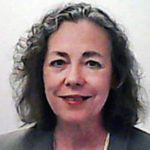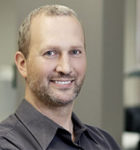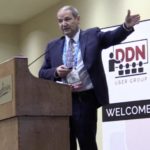In this Big Compute Podcast episode Gabriel Broner interviews Irene Qualters about her career and the evolution of HPC. “Some of the most profound advances that I have seen come from groups of people that have very different perspectives, very different ideas. We have to struggle to collectively bring our different disciplines on our world’s hardest problems, on the world’s most challenging problems.”
Big Compute Podcast: HPC and Genomics to Revolutionize Medicine
In this Big Compute Podcast episode, Gabriel Broner hosts Mark Borodkin, COO of Bionano Genomics, to discuss how genomics and HPC enable doctors and researchers to diagnose complex diseases and prescribe unique personalized treatments based on individual variations of the DNA. “We decided to abstract HPC in the cloud through Rescale and our software. All our customers need to know is that the solution offers the security and performance they need, and they don’t need to learn the new jargon of cloud.”
Big Compute Podcast Looks at Quantum Computing Today
In this Big Compute Podcast, Steve Reinhardt from D-Wave Systems describes how quantum computing can be used to find optimal solutions in complex optimizations. “For decades quantum computers will be used in a hybrid mode with classical computers. So as a developer you don’t have to solve your complete problem. You can look at where the time is spent in computation and move those models to quantum computers. These modules may be optimized to be billions of times faster.”
Podcast: Rescale powers Innovation in Antenna Design
In this Big Compute podcast, Gabriel Broner hosts Mike Hollenbeck, founder and CTO at Optisys. Optisys is a startup that is changing the antenna industry. Using HPC in the cloud and 3D printing they are able to design customized antennas which are much smaller, lighter and higher performing than traditional antennas.
Big Compute Podcast: Boom Supersonic looks to HPC Cloud
In this Big Compute Podcast, host Gabriel Broner interviews Josh Krall co-founder and VP of Technology at Boom Supersonic. Boom is using HPC in the cloud to design a passenger supersonic plane and address the technical and business challenges it poses. “We witnessed technical success with supersonic flying with Concorde, but the economics did not work out. More than forty years later, Boom is embarking in building Overture, a supersonic plane, where passengers will pay the price of today’s business class seats.”
Big Compute Podcast: Accelerating HPC Workflows with AI
In this Big Compute Podcast, Gabriel Broner from Rescale and Dave Turek from IBM discuss how AI enables the acceleration of HPC workflows. “HPC can benefit from AI techniques. One area of opportunity is to augment what people do in preparing simulations, analyzing results and deciding what simulation to run next. Another opportunity exists when we take a step back and analyze whether we can use AI techniques instead of simulations to solve the problem. We should think about AI as increasing the toolbox HPC users have.”
Big Compute Podcast Looks at HPC in the Cloud for Academia
In this Big Compute podcast, host Gabriel Broner from Rescale interviews Marek Michalewicz about the challenges of HPC in the Cloud for Academia. “ICM UW is a leading data science facility in Central Europe. High performance computers used for processing, analysis, visualization and advanced computing tasks are our speciality. “At ICM UW, we are a highly qualified team of experts, equipped with modern high-performance data infrastructure. We provide optimized, comprehensive solutions for research, business and the public sector. Our goal is to understand data and provide innovative solutions to organizations and institutions, taking advantage of our data science expertise.”
Big Compute Podcast Looks at New Architectures for HPC
In this Big Compute podcast, host Gabriel Broner from Rescale interviews Mike Woodacre, HPE Fellow, to discuss the shift from CPUs to an emerging diversity of architectures. They discuss the evolution of CPUs, the advent of GPUs with increasing data parallelism, memory driven computing, and the potential benefits of a cloud environment with access to multiple architectures.











